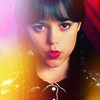That's a
wrap, folks! Today I concluded the entirety of the Earthsea Cycle by Ursula Le Guin for the first time. The final book in this series is
The Other Wind, but the collected volume I have also includes after that a few short stories by Le Guin set in the Earthsea universe as well as a lecture she gave at Oxford on gender and the Western archtype of a hero. Seemed best to lump these all together for this review.
I was emotional about this book from the start, and I can only imagine it was moreso for those who had been familiar with Ged and Tenar for decades before this book was published. The Earthsea Cycle begins with
A Wizard of Earthsea in Ged's childhood, before he's even discovered his propensity for magic, and here at the start of
The Other Wind, he is a man in his seventies, puttering about his old master's house and waiting for his wife and daughter to come home. We've gotten to see Ged throughout his life--as a child, apprentice, wizard, archmage, goatherd (take 2), old man--and this continuity and journey really got to me.
At the end of the previous novel,
Tehanu, the mantle of hero is passed on narratively from Ged and Tenar to their adopted daughter, Tehanu, but it's here in
The Other Wind that Tehanu really comes into herself. Given Tehanu's past trauma, the way she clings to Tenar and Ged makes sense, so it was very rewarding to see her grow into herself here and eventually claim the power she was told by the dragon Kalessin she possesses at the end of
Tehanu.
As with
Tehanu and
Tales of Earthsea, women play a much more central role in
The Other Wind. Our noble king, Lebannen, who came into his own in the third book of the original trilogy, is really blown hither-and-thither by the women of the book, who are the real plot-movers. Tehanu, the youthful rising power; Tenar, the wizened heroine; Irian, the free woman who's embraced the power Tehanu shares; Seserakh, the foreign princess who brings Kargish knowledge of dragons; these are the real players of the game. The kings and wizards who follow in their wake exist to help them carry out the plot.
As with all the Earthsea books, Le Guin focuses her fantasy without centering violence. The great plot of
The Other Wind essentially boils down to righting an ancient wrong, and it is resolved through shared knowledge and cooperation. On the whole, the book feels quite positive and we leave Earthsea for this final time on a sweet and hopeful note.
The conclusion itself feels perfect: Ged and Tenar on Gont, talking of nothing, in the end. Who else but Le Guin would have concluded her epic fantasy series with her male hero explaining how he'd kept up the house in his wife's absence? The pair go for a walk in the woods, and that's where the overarching plot of Earthsea ends, beautiful in its simplicity.
If I had a complaint about Le Guin's writing, it's that she sometimes stows key elements of the plot in opaque dialogue between characters, which comes up a little here, but not as much as in
Tehanu.
After
The Other Wind come a few short stories by Le Guin set in the world of Earthsea. These are fun little tales, none longer than fifteen pages, which have nothing to do with any of the characters we know, until the final one. If you like the worldbuilding of Earthsea, these will be a great addition. The final one, for reasons I won't spoil, had me getting choked up even though I suspect from the opening paragraphs what was happening.
I had such fun exploring Earthsea and while I wish I had gotten into them when I was younger (because I know how much I would have enjoyed them as a teen!) I'm still glad to have found them now (and I can just envision the daydreams I would have spun about my own female mage OC if I had known about these books then...) I know I'll revisit Earthsea and the adventures of its heroes again, although I'll stick to the paper versions--I've heard
nothing good about any of the attempted screen adaptations! It truly feels like this has been a journey, and what an enjoyable one its been.
![[personal profile]](https://www.dreamwidth.org/img/silk/identity/user.png) marycatelli) wrote in
marycatelli) wrote in ![[community profile]](https://www.dreamwidth.org/img/silk/identity/community.png) books2025-09-27 10:54 am
books2025-09-27 10:54 am






